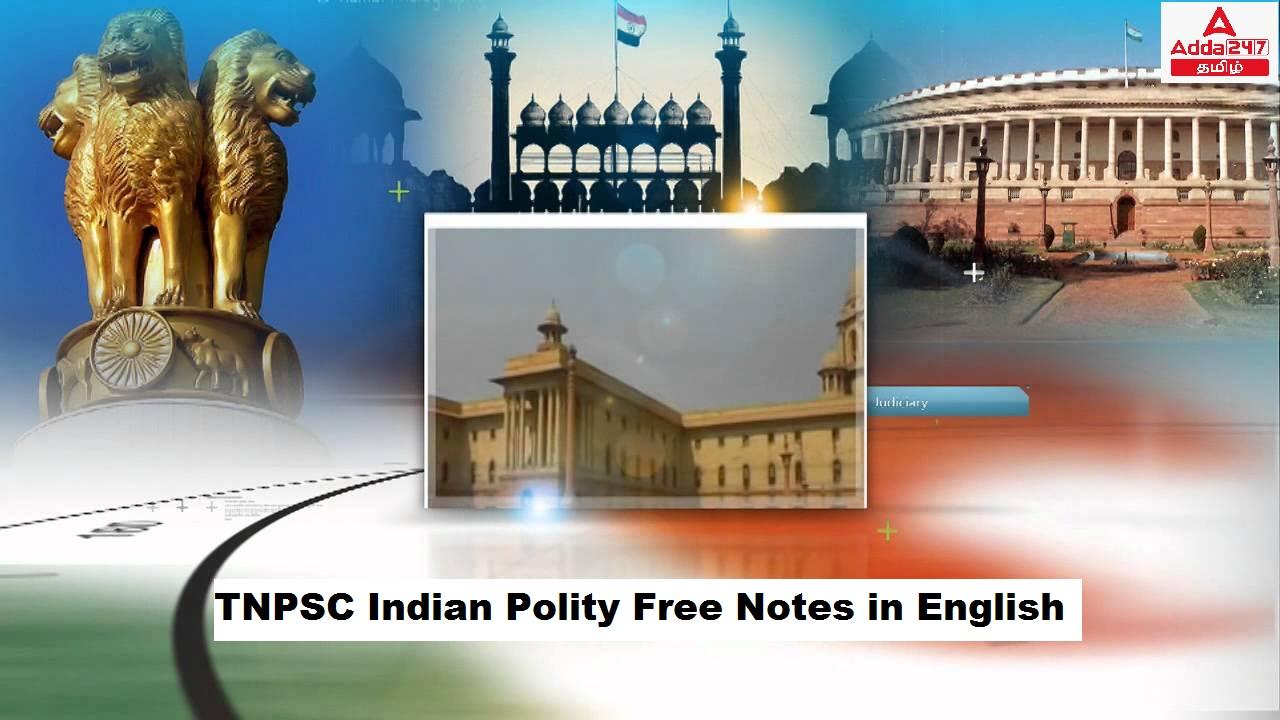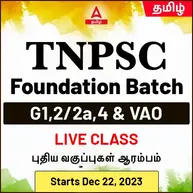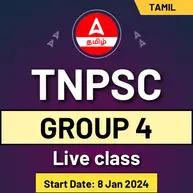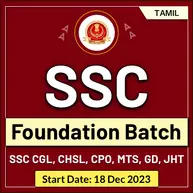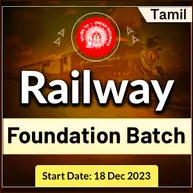இந்தக் கட்டுரையில், TNPSC குரூப் 1, குரூப் 2, குரூப் 2A, குரூப் 4 மாநிலப் போட்டித் தேர்வுகளான TNUSRB, TRB, TET, TNEB போன்றவற்றுக்கான முறைகள் இலவசக் குறிப்புகளைப் பெறுவீர்கள்.தேர்வுக்கு தயாராவோர் இங்குள்ள பாடக்குறிப்புகளை படித்து பயன்பெற வாழ்த்துகிறோம்.
Municipality -1
Introduction:
Under the 74 th Constitutional Amendment, the urban areas comprise different types
of municipal bodies constituted with reference to the character, size, and importance
of different towns and cities. Municipal Corporations, Municipal Committees, Notified
Area Committees, Town Area Committees, and Cantonment Boards are the usual
types of municipal bodies.
While the first four types were created under the state municipal laws, the
Cantonment Boards owed their origin to the Central Act called the Cantonments Act,
1924.
74 th Constitutional Amendment Implementation and Implications
After passing the Constitution (74 th Amendment) Act, 1992, the Government of India
notified the Amendment in June 1993.
The Act of 1992 provided for a period of one year from the date of its commencement,
the states were required to change, amend or modify their legislations in order to
incorporate the Central Amendment. Various States and Union Territories have enacted
legislations for the governance of the urban local bodies in their respective jurisdictions.
For example, the Punjab government enacted the Punjab Municipal Bill, 1998 to replace
the Punjab Municipal Act, 1911.
The Grama Sabha meetings are held four times a year:
26 January (Republic Day)
01 May (May Day)
15 August (Independence Day)
02 October (Gandhi Jayanthi)
A three-tier structure of urban local bodies was proposed in the 74 th Constitutional
Amendment act, namely, Nagar Panchayat or Town Panchayat, Municipalities and
Municipal Corporations.
Nagar Panchayat or Town Panchayat
A Nagar Panchayat or Town Panchayat is constituted for a transitional area, ie. , an area
in transition from a rural area to an urban area. The population of such an area is 5000
or more but less than 15,000.
The revenue generated from tax and sources exceeds such amount per capita per
annum as many are specified by the government from time to time.
Every Nagar Panchayat is a body corporate and has a perpetual succession and a
common seal with power to acquire and hold, or dispose of properties and may sue and
sued.
A Town panchayat shall consist of such number of elected members as the state
government may determine by rules.
The members of the legislative assembly representing the constituencies comprising
transitional area or any part of thereof and two members nominated by the state
government from amongst persons having special knowledge or experience in municipal
administration. The nominated members shall not have the right to vote in the Town
panchayat meetings. The term of a Town Panchayat shall be 5 years.
The government shall divide a transitional area (town panchayat area) into a number of
territorial constituencies known as wards and each ward shall elect only one member.
Out of the total number of seats in Town Panchayat to be filled by direct election, seats
are reserved for Scheduled Castes (SC) and Scheduled Tribes (ST) in the same proportion
of the population of SCs and STs to the total population of that town panchayat area.
In addition, one-third of the total number of seats of that area is reserved for women,
including the seats reserved for SCs and STs.
The town panchayat members shall be elected from amongst its members, One
President and one Vice President in a meeting convened by the Deputy Commissioner.
Every Town Panchayat shall perform obligatory functions such as water supply,
drainage, clearing the streets etc. Every town panchayat shall have an executive officer
appointed by the state government.
Municipality
A Municipal Council or municipality is constituted for a small urban area with a
population of 15,000 or more but is less than 3 lakhs and the revenue generated from
the tax and other sources exceeds such amount per capita per annum as may be
specified by state government from time to time.
Municipality
Grade
Population
Class – A 1 Lakh or more
Class – B 50,000 – less than one lakh
Class – C Less than 50,000
A Municipal Council or Municipality for example in Class-A, not less than 20 and not
more that 50 elected members; Class-B 15-30, and Class-C, 10-15.
The members of State Legislative Assembly representing the constituencies lying within
the municipal area are “Ex-Officio” members of the Municipal Council.
Not more than 3 members are nominated by the state government. The nominated
members do not have the right to vote in the elections of the chairpersons and vice
chairpersons. The members are elected through secret ballot.
The whole municipal area is divided into wards, as per the number of councilors to be
elected. The electoral rolls of the legislative assembly in relation to municipal area are
generally taken as the voters list.
The candidates contesting in the elections are allotted symbols. The symbols of the
recognized political parties are allotted only to the candidates sponsored or adopted by
them.
The Deputy Commissioner has to call the meeting of the elected members within 14
days of the notification of the election results to administer the Oath of office and to
hold the election of the President and Vice-President.
As that of Town Panchayats, seats are reserved for the SCs and STs according to the
proportion of the population of SCs and STs to the total population of the municipal
area. In addition, 30 per cent of total seats are reserved for women, including the SCs
and STs seats.
The 74 th Amendment provide the constitution of ward committees consisting of one or
more wards within the territorial area of a Municipality, having a population of 3 lakhs
or more.
A member of a Municipality representing a ward within the territorial area of the ward
committee shall be a member of the ward committee. The Standing Committees shall
be constituted for each Municipality consisting of the President, senior Vice- President,
and Vice president and 4 other members in the case of Class- A, 2 in the case of Class-B
from among the elected members for a period of 2 and half years.
The term of office of Municipality is five years. The elected municipality can be dissolved
if it is not performing as per the provisions of law.
The Municipal Council meets at least once in a month, presided over by the President or
in his/her absence Vice- President. The Municipal Council with the increasing load of
work, elects subcommittees comprising councillors from amongst itself to study a
problem in depth and make recommendation for its solution.
The sub committees are of two types statutory committees and, non- statutory
committees. Municipal bodies also appoint special sub-committees for certain specific
purposes and follow the same procedure for their election as it adopts the constitution
of standing sub committees.
Municipality Council
A Municipal Council elects its President from amongst members within one month of
the constitution of Municipal Council. The Municipal Council is constituted after
elections are held.
The President is elected for a period of 5 years. The Municipal Council also elects one or
two Vice- Presidents. The Presidents of the municipalities in various states draw
monthly salary in addition to travelling allowance.
The President convenes and presides over the meeting of the Municipal Council. He/She
is empowered to take disciplinary action against offending councilors. The President is
the chief spokesperson of the Municipal Council and represents it at official functions
and also with regard to correspondence with the government.
The state government in every municipality appoints an Executive Officer. The Executive
Officer is the principal executive authority and all municipal staff is sub-ordinate to him/
her. He/ She is the important officer to execute, supervise monitor and report the
activities of the Municipalities to the council.
The Municipal Council is the governing body of the Municipality, responsible for
Municipal Administration. It makes by laws the governing place and time of council
meetings, the manner of giving notices, the conduct of meetings.
The councilors are expected to keep themselves in touch with the citizens and enquire
about their grievances against municipal staff, and bringing to the notice of the
appropriate administrative head or to raise the matter in the council meetings.
The powers and responsibilities of municipalities are enshrined in the Twelfth Schedule
of the Constitution.
The 74th Constitutional Amendment provided the constitution of committee for district
planning, to prepare a draft development plan for the district as a whole. The
committee shall consolidate the plans prepared by the panchayats and municipalities in
the district.
The composition of the District Planning Committee as provided in the Act of 1992,
consists of that not less than of the total members of the committee.
They shall be elected by and from amongst the elected members of the Panchayats at
the district level and of the municipalities in the district, in proportion to the ratio
between the population of the rural areas and of the urban areas in the district.
The Municipalities have been provided with the power to raise revenue for discharging
its duties and performing its functions such as the taxes, duties and fees which could be
levied and collected by the Municipalities (For example: tax on lands and buildings,
scavenging tax on octroi, a tax on advertisements, a fire tax, toll on roads and bridges
etc.) the 74 th Amendment Act made it obligatory for the state governments to Constitute
State Finance Commission within one year from the commencement of Act.
**************************************************************************
| Adda247 TamilNadu Home page | Click here |
| Official Website=Adda247 | Click here |

